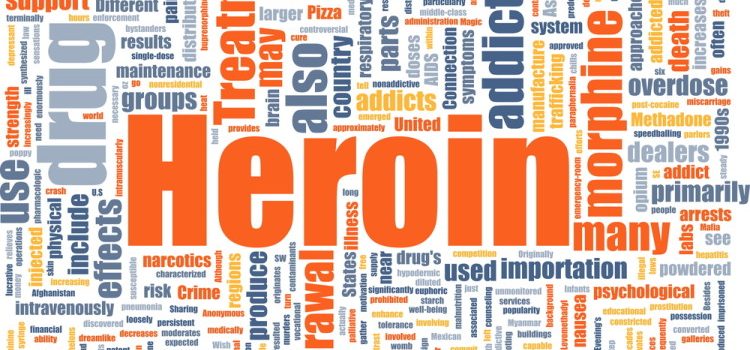
Boston Addiction Aftercare Programs
October 1, 2015
Boston Intervention & Addiction Treatment
October 29, 2015Treating heroin overdoses in Boston
In recent years heroin overdose rates have been rising rapidly throughout the United States, with Boston being particularly hard hit. This rise has surprised many, given a dip in heroin use through the 2000s.
However, the trend of medical doctors prescribing opioids for pain relief has had the effect of inadvertently increasing the demand for heroin. People who become hooked on prescription opioids may sometimes eventually turn to heroin when legitimate sources become unavailable.
Heroin overdose rates have been rising alongside the use of powerful painkillers like Oxycontin, Fentanyl, and Vicodin. Fortunately, the medical community has in recent years started to take action to reduce the number of opioid prescriptions being written out.
If you’re considering treatment for yourself or a loved one, there are several drug detox centers in Boston that can help, many of them specializing in opioid use disorders. Call (857) 577-8193 for more information on available treatment options.
Signs of a heroin overdose
A heroin overdose happens when an individual consumes more heroin than their system can tolerate. Learning how to identify the signs of a heroin overdose can help one quickly identify whether a person they know might be in danger of one.
The signs below are also broadly applicable to overdoses on other types of opioid drugs, including fentanyl, morphine, and so on. If you suspect someone is having an overdose, call 911 or the relevant medical emergency hotline immediately.
Primary signs of a heroin overdose
- Shallow or stopped breathing
- Blue or pale skin
- Blue lips and fingertips
- Involuntary gasping for air
- Extreme drowsiness
Be sure to check the individual for signs of recent opioid use. Drug paraphernalia, track marks, and other details that they have recently used opioids can be a sign that the person may have overdosed. If there are drugs still in the vicinity, point them out to emergency responders so that the specific drug can be identified if needed.
Other symptoms of a heroin or opioid overdose include:
- Faint pulse
- Blue-black or otherwise discolored tongue
- Hallucinations or delirium
- Altered mental state
- Nausea
- Vomiting
- Dehydration
- Seizures
- Pinpoint pupils
- Clammy skin
- Limp movements
- Gurgling
These signs can manifest within 10 minutes of injecting heroin, and slightly longer if smoked, snorted, or consumed orally. Overdoses on heroin and other opioids can be fatal. This makes it important to act as soon as any of the signs above appear. Lay the person on their side so that they won’t have a hard time breathing. Call 911 or other emergency responders immediately and be sure to tell them you suspect an opioid overdose.
In Massachusetts, a Good Samaritan Law has been passed in 2012, which protects overdose witnesses who call in an OD from being persecuted. If you’re in the state and are witness to a potential overdose, call 911 immediately.
How is a heroin overdose treated?
Emergency responders or ER personnel will typically administer Naloxone, or Narcan, to stop the overdose and stabilize the individual. Naloxone is available in injectable and inhaler form and either can be used to counteract the immediate effects of an opioid overdose. You can get Narcan at a pharmacy in Massachusetts, sometimes even for free.
Afterward, medical detox may be started to help remove traces of opioids from the patient’s system. Drug substitution therapy may be used to ensure that the patient does not suffer from a fatal opioid withdrawal. This process will take as long as it’s needed for the patient to be well enough to receive counseling and therapy.
Why is heroin use rising in Boston?
There are many reasons for the rise in heroin use and overdoses. However, in Massachusetts, the rise is directly linked to a rise in the prescribing of powerful opioid-based painkillers.
For many years there was a perception that pain was being under-treated, and that caused many doctors to be freer with their prescribing of powerful and potentially addictive medications like Oxycontin and Fentanyl.
These painkillers are very effective at treating pain, but when not taken as indicated, they can also be powerfully addictive. Individuals who get addicted to these drugs often turn to heroin, since the drug is generally much cheaper than prescription drugs.
What are the options for heroin treatment in Boston?
There are several treatment options available for heroin use in Massachusetts and the Greater Boston Area, largely fueled by the demand brought on by the opioid crisis. Outpatient and residential opioid rehab and treatments are readily available in the state for all incomes and stages of recovery.
However, due to the extremely strong compulsive behavior caused by heroin and other opioids, residential addiction treatment is often the best and most effective choice.
There are several benefits of residential treatment for heroin misuse, including the availability of medical personnel to administer medical intervention, 24/7 monitoring, and the presence of experienced counselors.
If you or someone you know is suffering from a heroin or opioid use disorder, don’t wait for them to overdose. Don’t let them attempt to detox by themselves, as the withdrawal from opioids can be fatal. Instead, look for one of the many local rehab facilities that offer withdrawal management and medical detox for opioids.
If you live in the Greater Boston Area and are looking for answers, specialized directories such as Boston Drug Treatment Centers can help you find the best solution for you or your loved one’s opioid recovery needs. Call (857) 577-8193 today. You can also visit your local Narcotics Anonymous (http://www.usrecovery.info/NA/Massachusetts.htm) to share your story.

